Diabetes rates in the U.S. are on the rise, according to the Diabetes Research Institute Foundation. Although obesity is a key factor in the increase, it's certainly not the only reason for higher diabetes rates. In fact, untreated sleep apnea could also increase your risk of type 2 diabetes. Fortunately, Dr. Atif Sohail of Heart & Sleep Clinics of America in Arlington, TX, offers treatments that can help you avoid diabetes if you're diagnosed with sleep apnea or better manage your condition if you already have diabetes.
What is sleep apnea?
Sleep apnea occurs when you stop breathing while you're sleeping. Breathing pauses can last several seconds and may happen hundreds of times throughout the night. These breathing pauses deprive your brain of oxygen, which can lead to a variety of health consequences, including heart disease, high blood pressure, obesity, and depression.
The condition can occur if you have excess tissue in your airway, your tongue blocks your throat while you sleep, or your brain doesn't properly control breathing while you sleep.
Symptoms of sleep apnea can include:
- Snoring
- Gasping or jerking awake when you stop breathing
- Daytime fatigue
- Irritability
- Dry mouth or sore throat when you wake up
- Trouble concentrating
- Headache
How is type 2 diabetes-related to sleep apnea?
Diabetes occurs when your blood sugar level is too high. Sleep apnea may change the way your body uses glucose (sugar) and could cause insulin resistance, a condition that occurs when your body's cells don't respond normally to insulin. Insulin, a hormone made by your pancreas, controls the amount of glucose in your blood.
Insulin sensitivity, glucose control, and nighttime glucose levels improve when sleep apnea is treated, according to the American Academy of Sleep Medicine.
What can be done to treat sleep apnea?
Depending on the severity of your condition, losing weight may be enough to eliminate your sleep apnea symptoms. During your visit to the Arlington sleep clinic, your doctor might give you an oral appliance that may help reduce your symptoms. The appliance holds your jaw forward and prevents your tongue from blocking your throat while you sleep.
A continuous positive airway pressure (CPAP) machine is another option. CPAP machines deliver a steady stream of air into your mouth through a small mask. The stream of air prevents your airway from closing and prevents sleep apnea.
Do you think you may have sleep apnea? Call your Arlington, TX, cardiologist and sleep doctor, Dr. Atif Sohail of Heart & Sleep Clinics of America at (817) 419-7220 to schedule your appointment.
